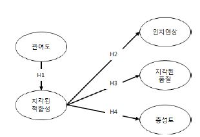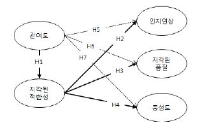PURPOSE This study aimed to identify the dimensions of sport brand authenticity and to develop a valid and reliable scale for measuring such dimensions. METHODS Along with a sequential mixed method design, qualitative researches were conducted (a literature review on brand authenticity and the inherent value of sport, 5 one-to-one expert interviews, and a Delphi survey of 10 researchers). Based on the qualitative research results, an EFA (n=304), 2 times CFA (1st: n=304, 2nd: n=311), and correlation analysis using the other scale (brand relationship quality, brand attachment, brand credibility) were conducted to test reliability, construct validity, and criterion-related validity. RESULTS In the qualitative research results, 8 dimensions with 36 items were extracted; however 6 dimensions (originality, connectedness, legitimacy, authority, sport spirit, and expertise) with 28 items were identified as appropriate structures from EFA and CFA, and the relations between all the dimensions and other scales related to consumer attitude were statistically significant in the correlation analysis. CONCLUSIONS The findings suggest that the scale in this study could provide a new and specific perspective on sport brand authenticity, which is constructed using a general aspect and a sport specific aspect, and an understanding of the concept of sport brand authenticity in other sport industries.

Although mega sporting events are becoming an effective means of brand communication, there has not been systematic research on involvement development and perceived fit enhancement through the sporting events. This study developed and tested a conceptual model delineating the impact of consumer involvement on perceive fit, and brand equity in mega sporting event context. Using quota sampling method, 1,847 participants (916 from IAAF; 931 from the F1) were recruited from several different cities in Korea during the mega-sporting events. Structural equation modeling were employed to examine the relationship between research constructs and test the model respectively. The study found that mega event involvement has a positive effect on perceived fit; and perceived fit influences brand equity(brand awareness, perceived quality and loyalty) toward event sponsor brands. The direct effects of involvement on sponsorship effectiveness (brand awareness, perceived quality and loyalty) did not have a significant effect on brand equity. The findings also reveal the mediating effect of perceived fit on brand equity.

